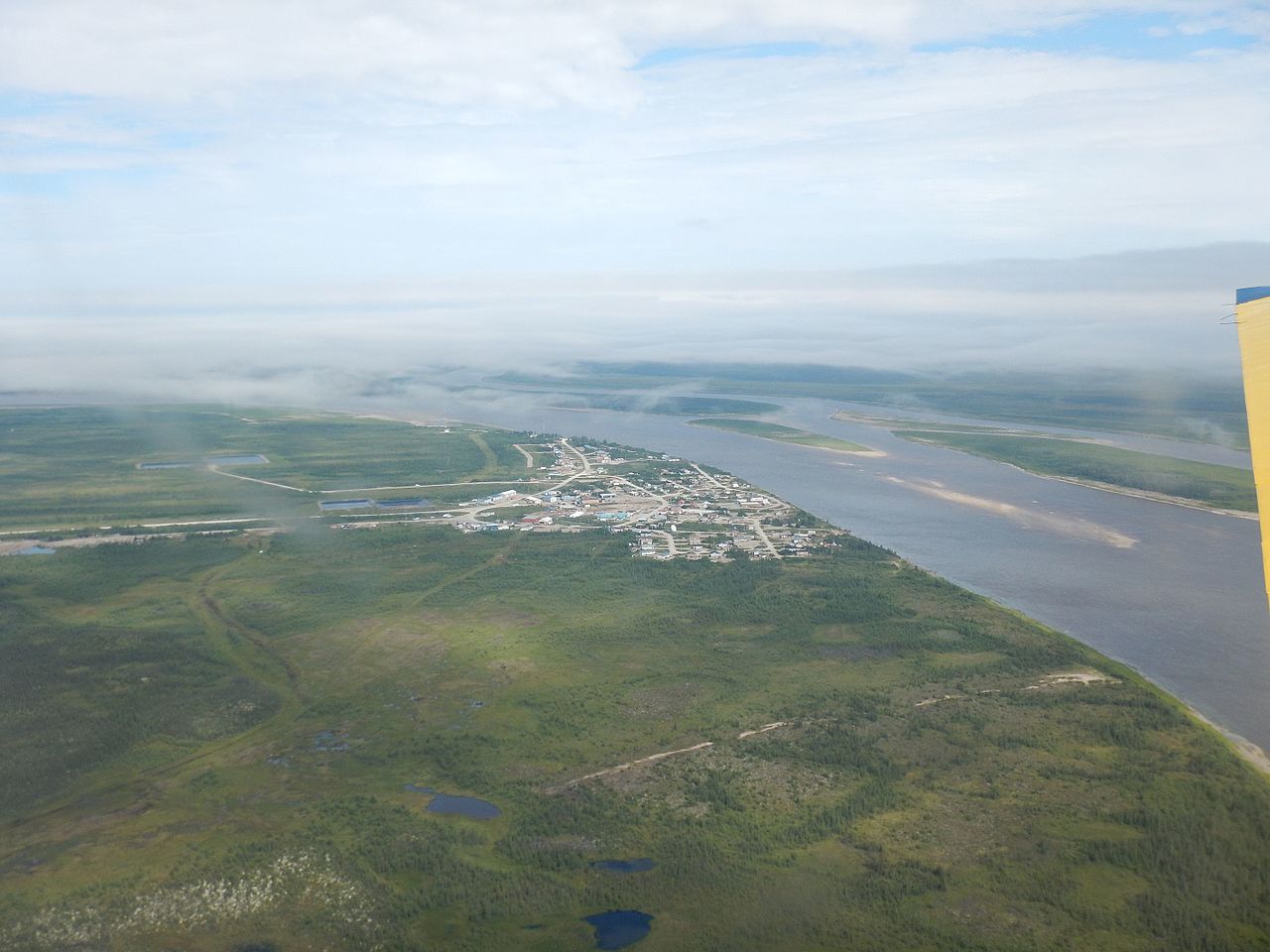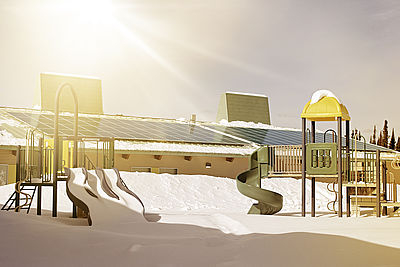Many Canadian First Nation communities are remote, and some are only accessible by winter roads. These are a majority of Canada’s 295 remote communities, which currently use diesel systems for electricity. Many of these diesel generators have reached their designed capacity and can’t meet the rising energy demands of growing communities. The cost of updating to new diesel-based systems is prohibitive.
Renewable energy, particularly solar energy, reduces the dependence on diesel fuel in these systems. PV is environmentally friendly and of major interest to microgrid system developers. However, integrating solar generation into small power systems in remote communities holds challenges, especially when compared to conventional grid-connected PV systems used in an urban electricity network.
CSSI gives remote communities in Canada microgrid solutions
In 2012, Keewaytinook Okimakanak (KO), a Tribal Council representing six First Nation communities in Northern Ontario, approached Canadian Solar Solutions Inc. (CSSI) for a solution to reduce the community’s’ dependence on diesel fuel and to increase affordable energy supply.
Fort Severn project: Phase 2 aided by HOMER software
Fort Severn is the most northern community in Ontario. The high transport cost of diesel fuel creates a very high electricity generation cost. The community is growing and was looking for a solution to reduce its diesel dependence. HOMER Partner CSSI proposed a phased-in solar capacity development plan in three Phases. In Phase I, a 24kWdc/20kWac solar rooftop system was installed. This phase showed the community and utility that renewables would not have a negative impact on its electrical system and would provide real costs savings. Billing from the utility showed a significant savings between 2014, before the PV system, and 2015, with the PV system in operation.

The closest permanent road to Fort Severn is 450km away, making the community among the most remote in Ontario.
In Phase II, CSSI is now implementing a pilot microgrid including a 253kWdc ground-mount PV system, 52kWdc of rooftop PV capacity, a 10kWac wind turbine, a 200kWac battery energy storage system, and a customer control system. This system will create a high renewable-energy penetration system.
For Phase III, CSSI has proposed a full microgrid, including 600kWdc solar, 500kWac wind and 750kWac battery energy storage system for diesel-off operation. Static analysis and feasibility studies for hybrid PV system have been performed using HOMER software. HOMER gives CSSI a better understanding of various scenarios for diesel savings at planning and conceptual design stages.
This project poses technical challenges such as frequency stability due to renewable penetration levels. The integration of a battery system and custom controls with variable wind and PV helps maximize energy penetration while maintaining grid stability.
A detailed dynamic analysis using PSCAD provided a better understanding of dynamic behavior of such systems without battery storage. PV shading trips the diesel gensets without any battery storage system support, but the proposed battery energy system will maintain the system frequency within the utility range.
Deer Lake: Panels delivered, lifted for installation by hand with community help
The Deer Lake First Nation, with a population of about 1,200 people, was chosen for the pilot First Nations solar-diesel hybrid solution project. In the winter of 2013-2014, Deer Lake experienced a 10% increase in its peak demand and the utility was unable to connect five new homes recently built in the community, as the existing diesel system had reached its capacity.
Canadian Solar proposed a phased-in solar capacity development plan. The first phase was to install a 152KW DC solar rooftop system connected to the diesel generating station, establishing a solar-hydro-diesel hybrid system.
Installation of the solar roof project began in February 2014. Installing the solar system project faced unexpected challenges. Shipping the system materials was a critical challenge, as they had to be measured to specification, packed, braced and shipped in two 40-foot containers from Canadian Solar’s Guelph manufacturing facility. Extra precautions had to be taken to avoid damages during the 2,200km long journey over bumpy, frozen winter roads. The materials were dropped off two kilometers from the installation site, as the school was not truck accessible. The community helped move all the materials to the school.
Once the panels were on site, the installation crew had to lift everything onto the roof manually, as the lifting equipment in the community had broken down, and replacement parts were not readily available. The installation was completed in -40 Celsius temperature with heavy snowfalls. Shoveling snow took a good portion of the daily working hours. But despite the various challenges, three weeks later the solar system installation was completed, right on schedule.

School rooftop solar installation in Deer Lake
The system in Deer Lake includes 1000 kW diesel generation, 500 kW hydro turbines and a 152kW DC solar PV system. The orientation of the roof mounted system was not optimal, but the PV system achieved a respectable 794kWh/kWp. Total energy yield in 2015 was 121MWh.
The installed PV system cuts the energy bill by $112,000 for the community every year and the payback term is less than five years. The project generated three part-time jobs during the installation of the system and another two part-time jobs to support the operations and maintenance (O&M) throughout the year. The new system displaces diesel fuel by at least 31,000 liters per year. It reduced emission 99 tons annually, equivalent to 20 cars’ carbon emission. With CSSI’s help, remote Canadian First Nations communities are finally gaining access to reliable, affordable clean energy.
Reported by Ehsan Nasr and Kyle Edginton, Canadian Solar
